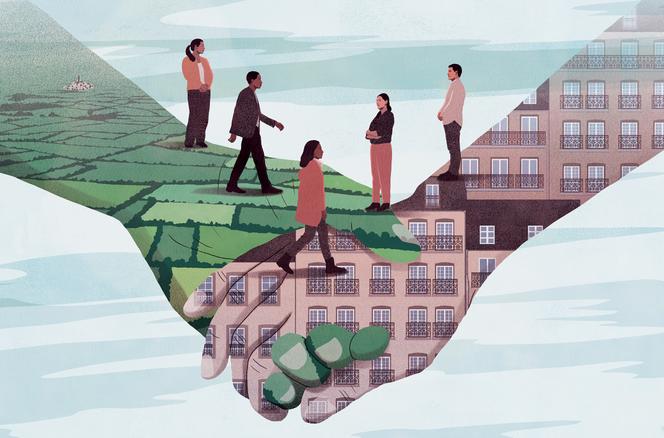


It's a binary reading which, by dint of being repeated election after election, tends to shape perceptions: Rural areas are said to be inevitably in the grip of the far right, while metropolitan areas allegedly provide pockets of resistance to the left. In short, it's the old refrain whereby the countryside is supposedly conservative by essence, while cities are allegedly progressive. While it's undeniable that the vote for Jordan Bardella's far-right Rassemblement National (RN) party increases outside of cities – as has been confirmed, once again, in the first round of France's snap parliamentary elections – it's not because people live in rural areas that they vote for the RN.
"Many commentators confuse correlation with causality," lamented Olivier Bouba-Olga, a geographer at the RURALITES laboratory at the University of Poitiers, who warned against making a perfunctory analysis of electoral geography based on spatial determinism. "Living in a rural commune rather than an urban one only marginally leads to voting more for the RN," he pointed out, after analyzing the impacts of several variables on urban-rural differences in European election votes and votes in the 2022 presidential elections. "The differences in votes between urban centers and rural areas can be explained not by the urban or rural nature of the communes, but by differences in social make-up – levels of education, income, generation, gender – by the history of the territory, the economic network or even working conditions." In other words: "When we compare the rural vote with the urban vote at the same level of education and age bracket, we can observe practically no further difference."
"It's in fact an effect of social morphology," agreed sociologist Benoît Coquard, who studies declining rural areas. He pointed out that working-class people with low levels of education are over-represented in these areas. "Graduates from these areas move to cities, or to more attractive rural areas with more graduates who vote on the left."
A trend toward "social concentration" that contributes to an "absence of political diversity" and therefore to the "hegemony" of RN ideas in certain local social circles, as he has observed in France's east: "If the people you associate with have an affinity for the RN, if when you turn on the TV or go out of the house people say good things about the RN, if nothing contradicts it, there's a legitimizing effect." As for the left, "it's invisible. Not only can it not be seen – there is no militant network – but its achievements are not tangible."
You have 71.63% of this article left to read. The rest is for subscribers only.
